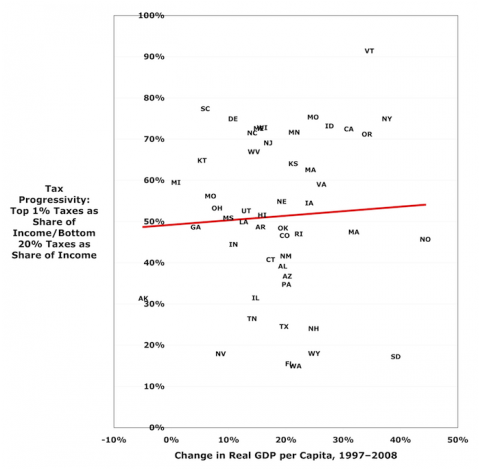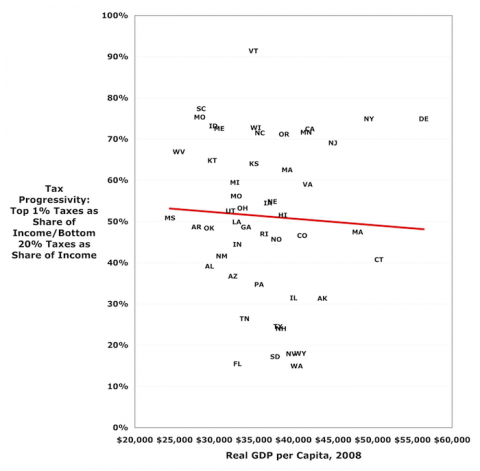I posted recently about how profoundly regressive state and local taxes are, with my home state of Washington being the very worst. A new initiative proposal by Bill Gates Sr. to institute a state income tax on high earners (while reducing business and property taxes) prompted me to revisit the issue.
My question: are states with more progressive taxes more or less prosperous? Do their economies grow faster or slower?
Short answer: no. In aggregate, there’s almost no difference between states with more-progressive taxes and those with less progressive regimes.
Even though both progressivity and economic growth vary wildly among states, there’s only a very small positive correlation between progressivity and growth in prosperity (change in Real GDP per capita):
And there’s a small negative correlation between progressivity and prosperity (2008 GDP per capita):
Both of these correlations (.06 and -.05) are too small to tell us anything at all. Either progressivity has no effect on these measures, or we can’t tell what the effect is.
For those who want the details or to play around with the numbers, the spreadsheet’s here.
Update May 7: I forgot to mention that I looked at this same subject before, comparing prosperous countries. More progressive countries seem to grow slightly faster. (Positive correlation: .13.)


Comments
2 responses to “Are Progressive States More or Less Prosperous? Not Really”
This doesn’t really surprise me; there are so many exogenous factors that they tend to dwarf state to state tax differences (fairly small as it is in the grand scheme of things).
@Chris
Yeah me either. But you never know till you look.
It could be, of course, that another way of analyzing it would give different results. But this is enough, for me, to stop looking at it and explore elsewhere.